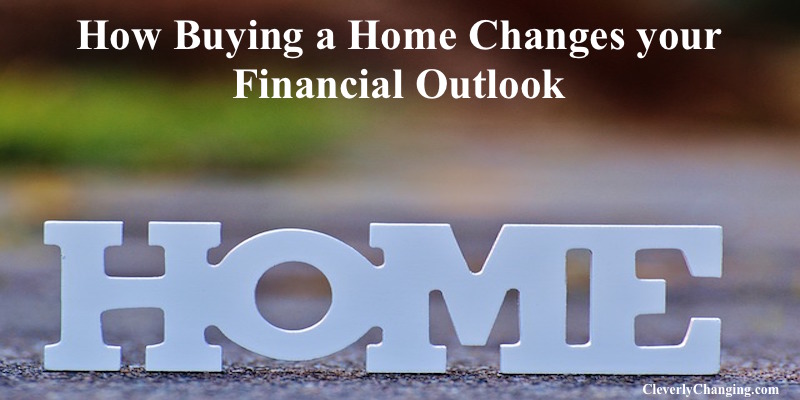Many first-time home-buyers have to make a big adjustment after buying a home. The budget needs to be re-negotiated, and you might worry about how financial mistakes could have a more drastic effect on your life now. When you know more about what to expect, though, the transition goes more smoothly.
 Buying a Home Increases Spending
Buying a Home Increases Spending
When you first move into a home, you’ll find that there are a lot more expenses. Even if you’re paying less on your mortgage payment than you are on rent, other things will cost more. Unless you’re handy, you’ll be the one paying for a plumber when the sink clogs or calling an electrician when one of the circuits goes out. You might also need to make a few big purchases, such as a lawn mower or a snow blower. These things all add up to a lot of extra money, and many families need to cut back on fun expenses to account for these necessary costs.
Buying a Home Can Cause Less Flexibility
While buying a home allows you to grow roots in your city, it also means that you have less flexibility. It’s a lot more difficult to take a promotion that involves a cross-country move or to shop around for a better school for your children. Even a new job that’s across town might not look as good when you factor in the added commute time. It can also be difficult to change the layout of your home as your needs change. These are things you should take into consideration when you select a home, but life changes, and owning a home can sometimes make it harder to roll with those changes. Purchasing new homes in Utah from a company like EDGE homes is one way to minimize the troubles you’ll face. You’re able to design the home exactly as you want it.
Buying a Home Increases The Need for Life Insurance
When you have a family, you want to be sure that your family is protected should you suddenly pass. Most families really value the ability to stay in their current home, but the costs could be too difficult for one parent to bear. With life insurance, you can have the peace of mind knowing that your family is safe. Make sure to purchase a policy that will fully pay off the mortgage balance. It’s also important to cover both parents, even if one parent stays home.
 Buying a Home May Not Be The Tax Shelter of Your Dreams
Buying a Home May Not Be The Tax Shelter of Your Dreams
Tax savings are often touted as one of the best reasons to purchase a home rather than renting. You can deduct some of the expenses you incur when you purchase a home, such as mortgage interest and the mortgage points you pay at closing time. However, these deductions only apply if they exceed the standard deduction. Those who purchase a more modest home may not pay enough in interest to deduct the expenses and will not see these savings.
Buying a Home Heightens The Urgency of Paying Off Debt
With all of the added expenses that come with owning a home, you’re likely to feel a much greater urgency when it comes to paying off your debts. For instance, if you’re paying $300 toward your student loans and $500 toward credit cards each month, it’s easy to see how your life could be a lot more comfortable if that $800 was going into your savings account instead. You’ll want to make changes to your lifestyle to make paying that debt off a priority. For instance, switching to LED light bulbs can reduce your energy costs, and cutting out cable can reduce your expenses. Apply these savings toward debt.
As you move into your home, you’re likely to experience a lot of upheaval. After the dust settles, take the time to re-think your financial priorities and make some changes.
This guest post is from Lizzie Weakley, a freelance writer.
Reader Question: What is one tip you wish someone had told you about buying a home that you wish you knew before you made the purchase?



